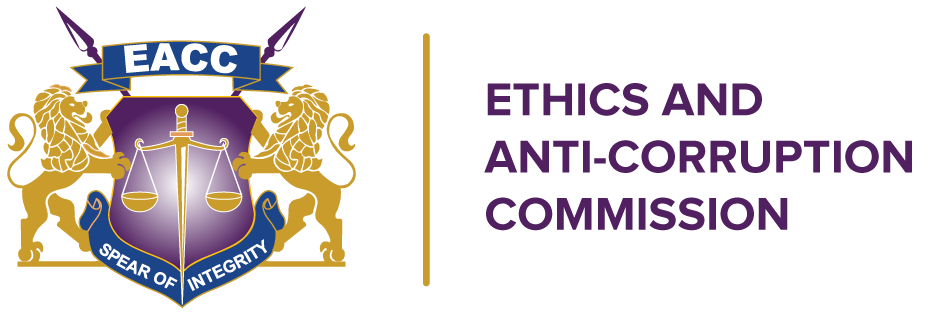Commission to link ICT systems with Integrated Population Register System
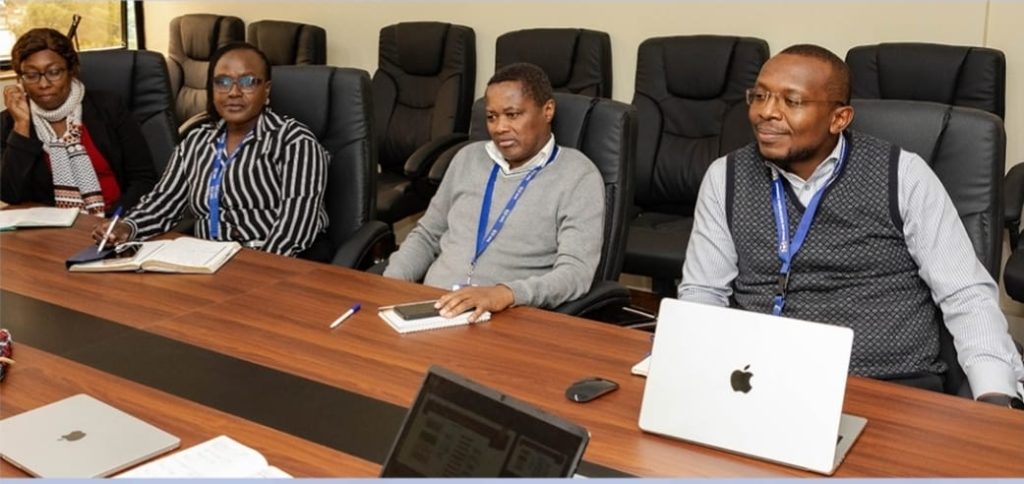
The ICT Department recently hosted a delegation from the Ministry of Interior and National Administration, State Department for Immigration and Citizen Services, to discuss the possible integration of EACC systems with the Integrated Population Register System (IPRS). The delegation, led by Mr. Kenneth Angir, Deputy Director in charge of ICT at the Directorate, engaged in productive discussions on how the Commission can leverage the IPRS. The system consolidates comprehensive citizen registration data, including births and deaths, national registration bureau records, refugee records, and immigration data. A joint timeline and work plan were agreed upon, targeting full integration within the next six months. Access to this data will significantly enhance the Commission’s operations in key areas such as investigations, the Adili Online Portal, and the forthcoming HR system.
The Commission executed a successful search operation targeting the residences and offices of six officials, including three County Executive Committee (CEC) Members, one Chief Officer, and two Directors of the Busia County Government.
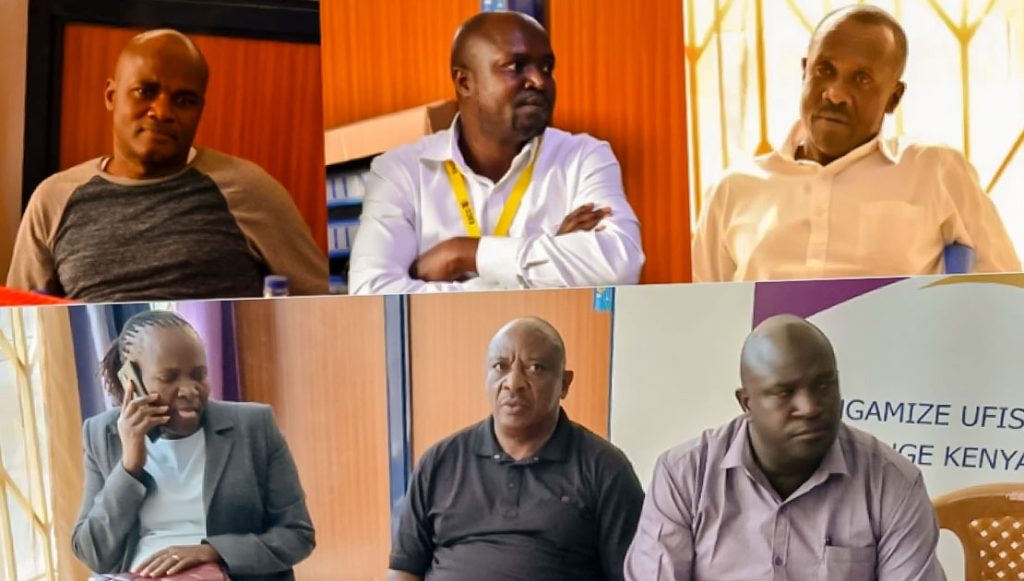
The Wednesday operation relates to tenders worth approximately Kes1.4 billion awarded to 26 proxy companies run by family members and associates of the county officials in the 2023/2024 FY. Investigations revealed that the suspects, including CEC Members Topister Wanyama, Finance and Economic Planning; Peter Odima, Housing and Urban Development; and Paul Ekwenye, Youth, Sports, Culture, Gender and Creative Arts, have amassed unexplained wealth that is not commensurate with their known legitimate sources of income. The other suspects include Gypson Wafula, Chief Officer, Finance, ICT, and Economic Planning; Evans Wangata, Director, Budget; and Leonard Omacha, Director, Supply Chain Management. They were all escorted to the Commission’s Western Regional Offices in Bungoma where they recorded statements. The operation yielded valuable evidentiary material that will support the ongoing investigations, which are just one of the 71 cases of corruption by officials of the Busia County Government reported to the Commission.
The Commission, represented by Ms. Roselyn Murugi (in the photo above), Senior Legal Officer, took part in a recently ended stakeholder dialogue and capacity building on asset recovery and financial investigations in Addis Ababa, Ethiopia.
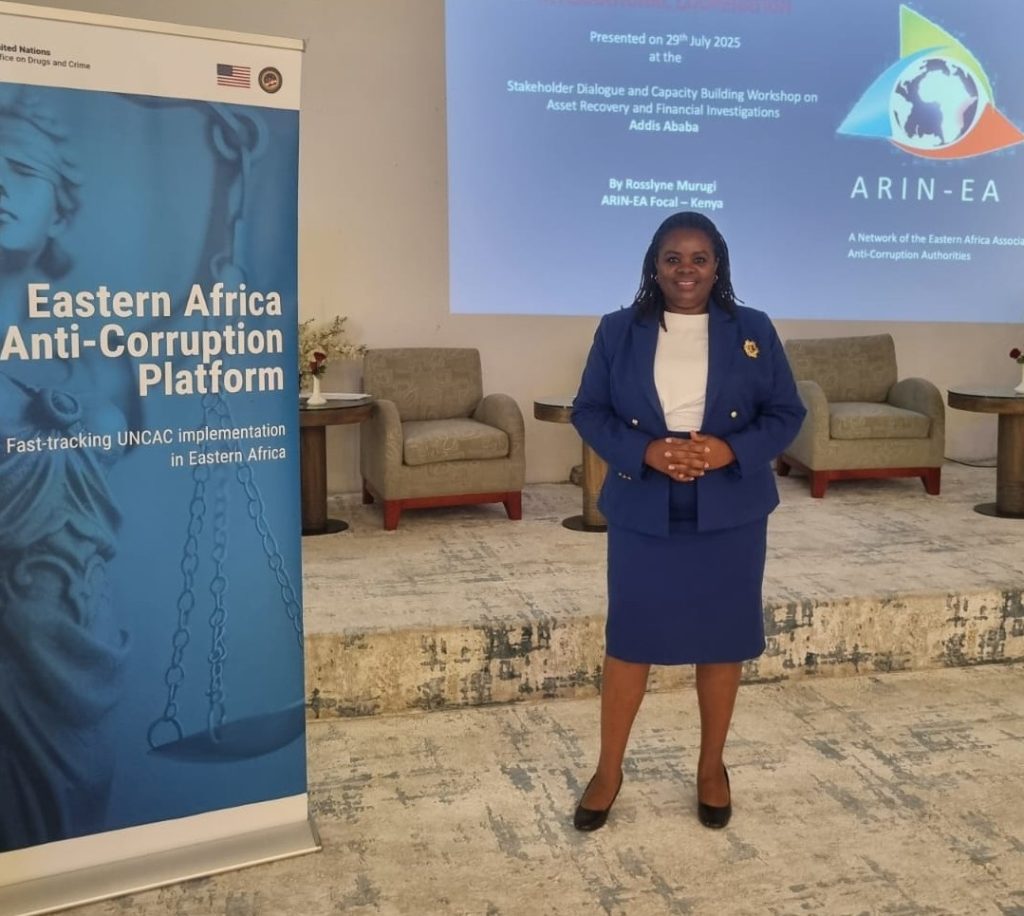
The five-day workshop was a joint initiative of the Eastern Africa Association of Anti-Corruption Authorities (EAACA) and the United Nations Office on Drugs and Crime (UNODC). It was organized as a continuous effort to enhance the capacity of relevant government officers to combat corruption, money laundering, and ensure the recovery of stolen assets. Her Excellency Hanna Arayaselassie, Minister of Justice, Federal Democratic Republic of Ethiopia, opened the July 28th to August 1st workshop, and also gave a keynote address. Also present during the opening ceremony were Her Excellency Tamara Mona, Ambassador of Switzerland to Ethiopia; Mr. Tesfaye Daba, State Minister of Justice; Mr. Muluken Amare, Director General, Financial Intelligence Service; and Mr. Francesco Checchi, Team Lead UNODC Africa Anti-Corruption Hub. The workshop discussed International Legal Frameworks for Asset Recovery and Financial Investigations. Presented by Mr. Francesco Checchi, Team Lead, UNODC Africa Anti-Corruption Hub, and Ms. Atuweni-Tupochile Agbermodji, GPML Adviser, UNODC Regional Office for Eastern Africa, the discourse focused on, among others, Chapter V of the United Nations Convention against Corruption (UNCAC), the Financial Action Task Force (FATF) Recommendations, and regional cooperation tools such as ARINSA (Asset Recovery Inter-Agency Network for Southern Africa) and the GlobE Network (Global Operational Network of Anti-Corruption Law Enforcement Authorities). Ms. Murugi, who is also Kenya’s Asset Recovery Inter-Agency (ARINEA) Network focal point, presented on International Cooperation Mechanisms for Asset Tracing and Recovery. She centred on the transnational nature of financial crimes, and explored methods for tracing assets across jurisdictions, including mutual legal assistance and international cooperation mechanisms. Other topical themes included Asset Recovery Proclamation No. 1364/2025, focusing on a shared understanding of the legal requirements among stakeholders within the criminal and civil justice systems, challenges and shortcomings, and possible solutions in the implementation of the Proclamation; Financial Investigations and ‘Follow the Money’ Techniques by Mr. Johannes Jansen Van-Vuren, UNODC Consultant; and Frameworks for Asset Return and Repatriation, and Challenges and Tools for Investigation by Ms. Atuweni-Tupochile Agbermodji, GPML Adviser, UNODC ROEA. The workshop was insightful, especially the discussion on digital/virtual Assets and Financial Crime, an emerging area in which Commission officers require knowledge and expertise in asset tracing.
The Secretary/Chief Executive Officer of EACC, Mr. Abdi A. Mohamud, officiated the course commencement for 26 EACC officers undertaking the Advanced Public Corruption Training at the FBI Academy in Quantico, Virginia, USA.
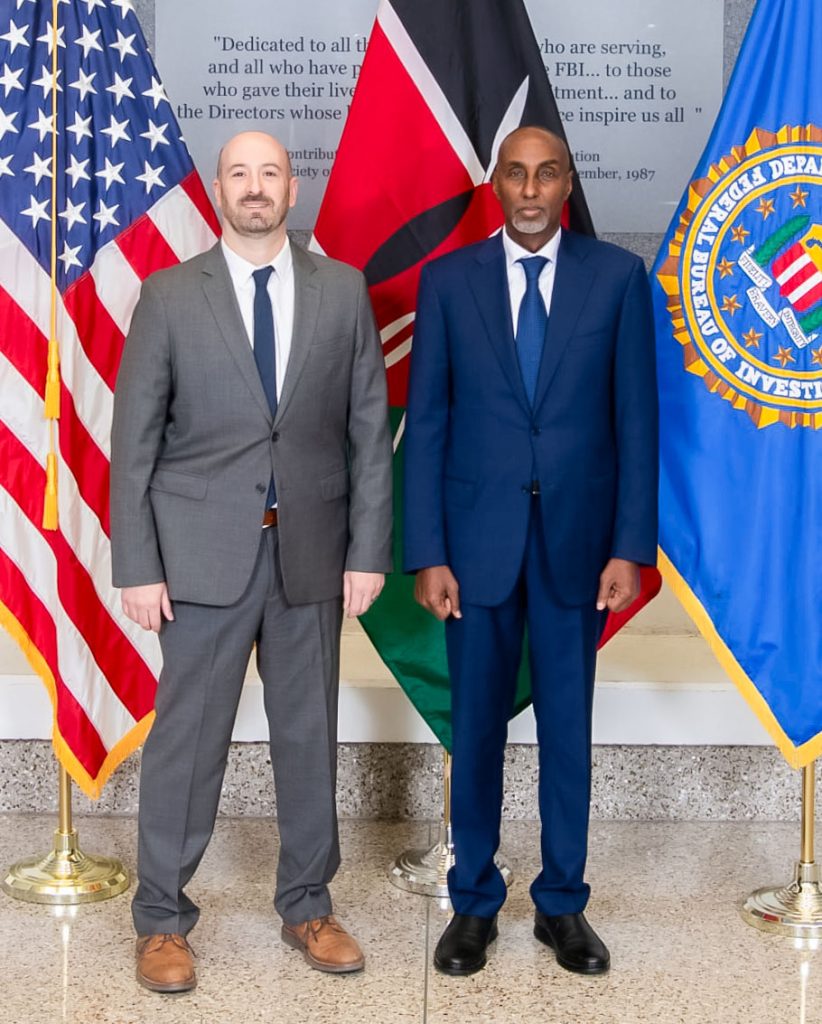
The opening ceremony was also graced by the Federal Bureau of Investigation’s Assistant Director in charge of Training, Mr. Matthew Miraglia, along with other FBI officials. The CEO commended the FBI for offering and facilitating the training. The training opportunity builds on the strong collaboration between the Ethics and Anti-Corruption Commission and the Federal Bureau of Investigation in the discharge of their respective mandates. The specialized training, focusing on advanced investigative techniques, anti-corruption strategies, forensic analysis, and international cooperation, was designed to enhance the officer’s technical skills in combating corruption and economic crimes. While addressing the course participants, the CEO underscored the significance of multi-agency cooperation, both regionally and globally, in the fight against corruption. Alongside the training, Mr. Mohamud held strategic discussions with the Bureau’s top leadership on possible areas of cooperation between the two agencies, including on intelligence sharing and recovery of proceeds of corruption. He also held meetings with the leadership of the Department of Justice (DOJ) with a focus on capacity building, especially on cross-border investigations and Mutual Legal Assistance (MLA). Winding up his tour of duty, the CEO paid a courtesy call on the Kenyan Ambassador to Washington DC, H.E. Amb. David Kerich, where the two leaders explored possible mechanisms of collaboration, especially on the issue of fake academic credentials allegedly issued by USA based institutions of higher learning.
The Commission has released the 2024 edition of the National Ethics and Corruption Survey (NECS), providing a comprehensive analysis of corruption and unethical practices in the country.
Conducted across all 47 counties between November and December 2024, the survey engaged 5,960 adults, capturing both their actual experiences and perceptions of corruption in public institutions and service delivery. According to the Report, which was launched on Tuesday at the Integrity Centre, bribery remains the most common form of unethical behaviour in Kenya. Over half of the respondents (52.1%) reported witnessing bribery in public offices, while 30.5% admitted encountering bribery situations. Other unethical practices cited include favoritism, abuse of office, tribalism, nepotism, and embezzlement of public funds. Unemployment, corruption, poverty, and high cost of living were identified as the most pressing national issues, with unemployment topping the list at 49.1%. Institutions such as the Teachers Service Commission (TSC), the Ministry of Labour and Social Protection, and the Kenya Wildlife Service were found to have high instances of bribery. At the county level, Kwale, Kilifi, and Wajir were among the most bribery-prone areas. Alarmingly, the prevalence of bribery reached 100% in counties such as Elgeyo-Marakwet, Marsabit, and Wajir among those who sought services. The average bribe in 2024 rose to Kes4, 878 from Kes3, 694 in 2023. The highest bribes were linked to employment in the county executive (Kes243, 651), national tenders (Kes100, 000), and TSC placements (Kes72, 665). Despite these statistics, 97.2% of bribery incidents went unreported due to fear of retaliation and lack of confidence in the reporting systems. The employment sector in county governments accounted for the largest share of national bribe amounts, with Uasin Gishu, Baringo, and Embu counties contributing significantly. Launching the Report, Chairperson Dr. David Oginde noted that the Commission is already undertaking interventions in some of the ministries and departments adversely mentioned, including systems reviews and corruption risk assessments aimed at identifying loopholes and recommending corrective measures. Representing the CEO, FCPA John Lolkoloi, Director, Ethics and Leadership, emphasized the urgency of addressing corruption. He urged accounting officers to treat the findings as a call to implement preventive measures in their institutions.
The Commission has launched a comprehensive corruption risk assessment of the systems and procedures of the Public Service Commission (PSC).
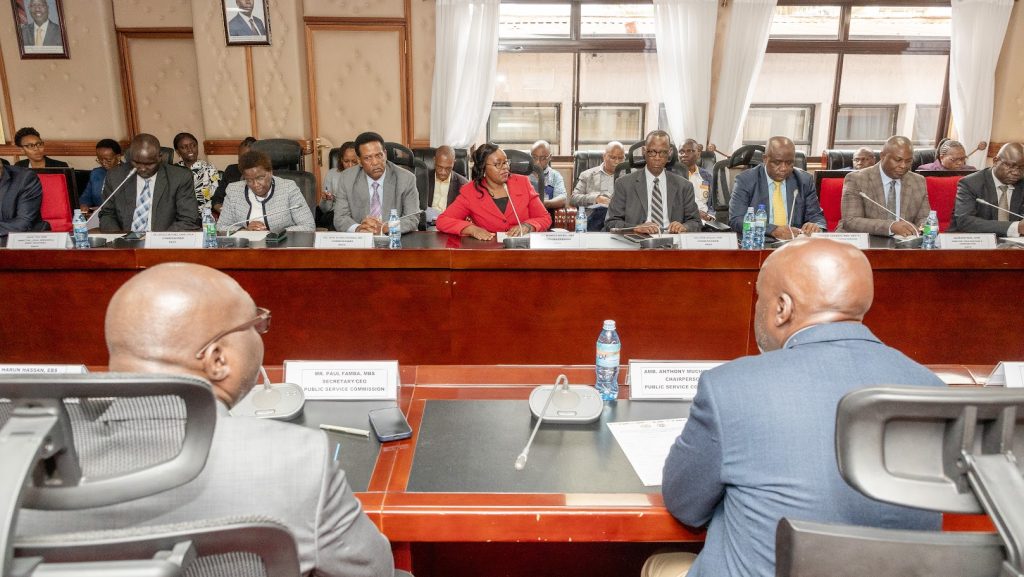
The exercise aims to identify weaknesses and loopholes within the PSC’s operational framework to bolster institutional transparency and accountability. The event, held at the Commission House, Nairobi, on August 1, 2025, marks the start of an in-depth assessment aimed at identifying institutional weaknesses and operational loopholes within the PSC. The review is designed to enhance service delivery and promote ethical conduct across the public service. Speaking during the launch, EACC Vice Chairperson Dr. Monica Muiru emphasized the importance of the review in enhancing governance standards within the public sector. Director of Legal Services, Mr. David Too (centre), in consultation with his counterpart for Investigations, Mr. Pascal Mweu to his right and Commissioner Dr. Cecil Mutuku to his left. Mr. Too represented the CEO, Mr. Abdi Mohamud, at the launch. “The system review will pinpoint areas of weakness and loopholes in the execution of the Public Service Commission mandate. It will support the strengthening of institutional transparency and accountability,” said Dr. Muiru. She said that a well-functioning and ethical public workforce is fundamental to national progress. “A dedicated and ethical public workforce is essential for achieving national economic and social development objectives. Without a strong commitment to good governance, a country risks falling into complacency, lethargy, and poor-quality services to its citizens.” Ambassador Antony Muchiri, Chairperson of the PSC, welcomed the review process and reaffirmed the Commission’s full cooperation. “The Public Service Commission wholeheartedly welcomes this exercise and assures you of our full cooperation and commitment throughout its duration,” he said. “This collaborative initiative marks a significant step in our journey to enhance transparency, integrity, and accountability within the public service.” Representing EACC CEO Abdi Mohamud, Director of Legal Services Mr. David Too reiterated the Commission’s dedication to improving the public sector through effective systems reviews. “EACC remains committed to supporting PSC in strengthening its systems, closing corruption gaps, and promoting efficient service delivery across the public sector,” he said. Mr. Too also stressed that the success of such reviews depends on the commitment of participating institutions. “Systems reviews can only yield meaningful results where there is genuine commitment, not just to participate, but to embrace the findings and implement the recommendations made.” The review is part of EACC’s broader mandate to promote integrity and good governance across public institutions in Kenya.
The Commission has recovered public land valued at Kes50 million within the Kenya Railways Light House Kizingo Estate in Mombasa County.
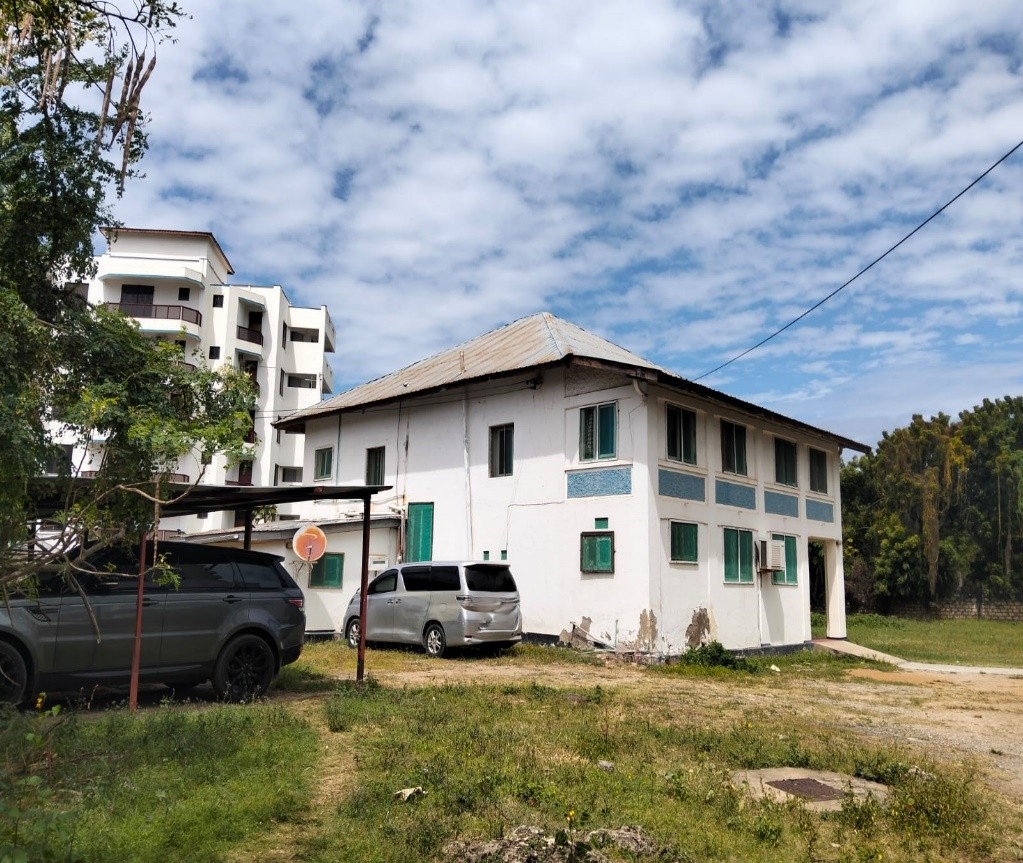
The parcel of land, known as Mombasa/Block XXVI/1137 and measuring approximately 0.0873 hectares, had been irregularly and illegally allocated to Kizingo Apartments Limited before being transferred to Kizingo Condominium Limited in 2011. The land is situated along Pwani Road, near the junction of David Kayanda Road, and houses structures initially developed by the East African Railways and Harbors Corporation in the 1950s, including a four-bedroom house and garage. The property has remained under the occupation and control of the Kenya Railways Corporation since its establishment. Following investigations by the Commission, a recovery suit was filed on July 7th, 2020, at the Environment and Land Court in Mombasa. In a consent agreement recorded and adopted before Justice Stephen Kibunja, Kizingo Condominium Limited agreed to surrender the property to the Government of Kenya for registration in favour of the Kenya Railways Corporation. Parties engaged in an Alternative Dispute Resolution (ADR), after which the consent was presented to the court for adoption. As part of the settlement, Kizingo Condominium Limited undertook to surrender the original Certificate of Lease for cancellation and rectification of the land registry in favour of Kenya Railways Corporation.
In a landmark move to strengthen the country’s anti-corruption framework, President William Ruto has signed the long-awaited Conflict of Interest Bill into law at State House, Nairobi.
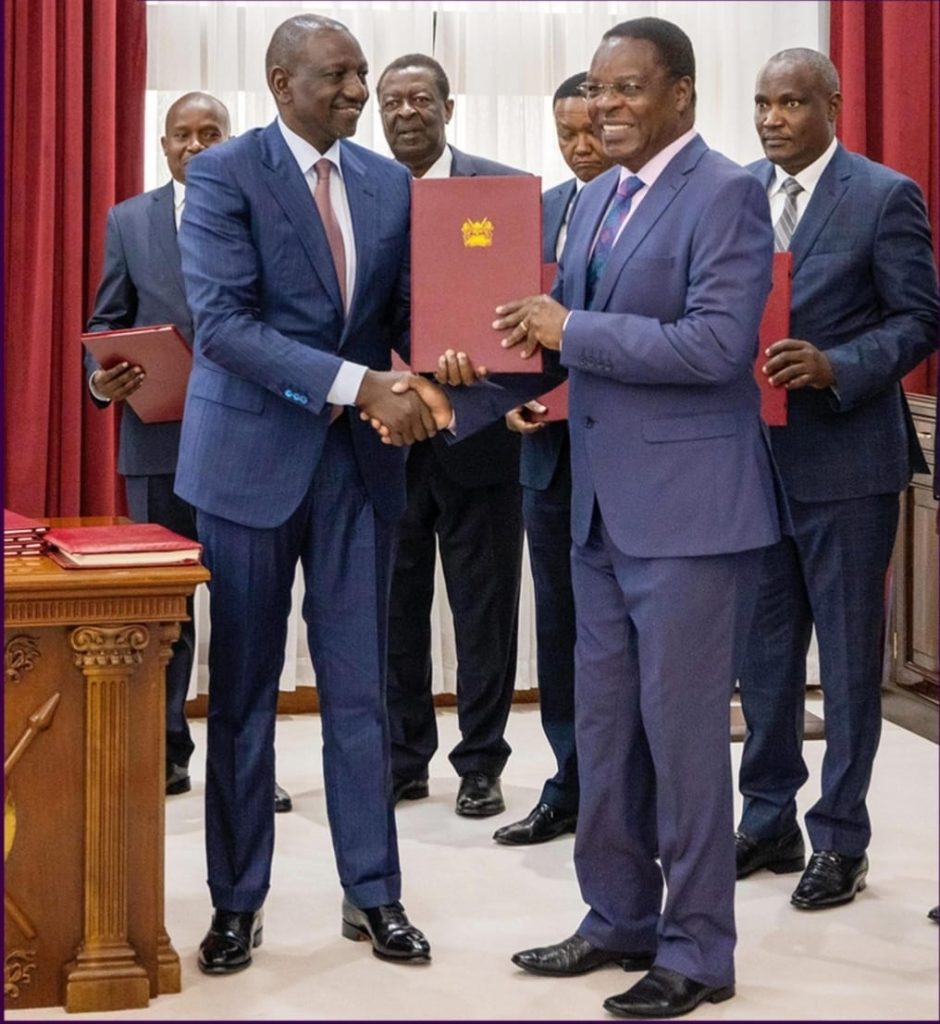
The new legislation is expected to significantly curb the abuse of power and misuse of public resources by public officers. Speaking last week during the signing ceremony, the President described the moment as “consequential” for Kenya, noting that the law sets clear standards to ensure public officials uphold integrity, transparency, and accountability in the discharge of their duties. “This is a very consequential moment in Kenya. We are making it much more difficult for people to take advantage of the offices they occupy,” the President said. He emphasized that the new law empowers citizens to hold public officers accountable and enhances oversight by the Ethics and Anti-Corruption Commission (EACC), which will supervise the law’s implementation. The EACC’s oversight will now extend beyond the Executive to include the Legislature and Judiciary, particularly on matters of wealth declaration. “To the EACC, you now have levers to make sure that you protect the resources of the Republic of Kenya and hold every officer to account,” President Ruto stated. The principal objective of the Conflict of Interest Act is to consolidate all legislation related to conflict of interest, repealing the Public Officer Ethics Act. It establishes a comprehensive framework for identifying and managing conflicts in public service under EACC’s general supervision. The law prohibits preferential treatment, restricts undue external influence in public contracts, and limits secondary employment that may undermine official responsibilities or create a conflict of interest. President Ruto had earlier referred the Bill back to Parliament with reservations in April 2025. Both the National Assembly and the Senate later adopted the President’s proposals, passing the Bill on June 3 and July 23, 2025, respectively. The signing ceremony was attended by top government officials, including EACC Chairperson Dr. David Oginde, CEO Mr. Abdi Mohamud, National Assembly Speaker Moses Wetang’ula, Senate Speaker Amason Kingi, Attorney-General Dorcas Oduor, and Labour and Social Protection Cabinet Secretary Alfred Mutua, among other senior state officers.
